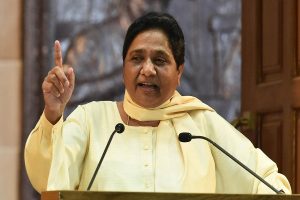As I submitted my last of four end term papers as the final requirement for the fall term at the Harvard Kennedy school, I finally had the choice to think and reflect on the preceding 12 weeks! Between assignment deadlines, simulations, class preparation, intense discussions and running of the household time had simply flown. I had interacted with bright minds from across the globe who had inspiring life stories. Being a Mid-Career Masters student at the Harvard Kennedy School was my first international academic experience. I couldn’t resist from doing a mental exercise of evaluating this experience to my first post graduate experience at IIM Ahmedabad from where I had graduated almost 16 years ago!
It’s not worthwhile to stir a hornet’s nest by saying that the HKS and IIMA are the best in the business. However, it can be said with complete conviction that when I applied for public administration masters the first institution, I penned down was the HKS. Similarly, for an MBA in India, it was IIMA where I wanted to go! There are many things in common which included the flipped classroom model, group work, continuous assessment, and diversity class compositions. Infact IIMA adopted the HBS case method pedagogy right from its inception. Here however, I identify three ingredients which a 37-year-old me in 2021 which recommend taking from HKS to my experience in IIMA as a 20-year-old!
Advertisement
The contrasting in experience begins with the manner of entry. For HKS, your unique life journey and future mission conveyed in essays holds the key whereas for IIMA it was based on a single two-hour examination followed by an interview. Both systems are looking for different facets in a person. This difference carries itself into the way academics and job opportunities are approached. At HKS there is emphasis on self-initiative through a highly encouraged system of ‘networking’ where one reaches out to colleagues, professors, and employers, leaving a lot to individual initiative, drive, and collaboration. At IIMA, this was a job left to the placement committee. Networking was limited to a pre-placement dinner at one of few fancied Hotels in Ahmedabad the night before the interviews, an exclusive practice of the Investment banks. Academic grades were the ticket to the interview stage, the job, and the big bucks! The rest did not matter. Exceptions to this were there but rare. Looking back, I feel this made the environment unnecessarily more competitive than it needed to be. Would an insecure, raw 20-year-old me have benefitted from a more collaborative spirit in a system which prioritized individual brilliance over all else. Yes, I think so!
Advertisement
The second observation at HKS was the levels of padding in the support systems for students. In addition to the normal classroom teaching, there is the widely encouraged and publicized concept of ‘office hours’ with professors, teaching fellows and course assistants. The teaching support team is drawn from the current pool of students thereby diluting any mental constructs of hierarchy. There are time slots students can book with members of the teaching team to clear course related doubts, further discussion or simply take some career or non-academic advice. This helps people get to know each other better. It is especially beneficial to those students who are hesitant to ask questions in front of others. The entire emphasis is to create a learning environment in which students shed their insecurities, feel comfortable and start soaking in the learnings. Grades are not released publicly. Asking the most innocuous questions is explicitly encouraged. Such padding allows students to put the fear of failure outside their consideration set and enhancing their risk-taking ability. They know that even if they take courses in which their prior technical knowledge is lacking, this reinforced teaching support system will help them through.
Looking back, I remember my time at IIMA as one by baptism by fire. There were no kid gloves. The experience of rubbing shoulders with the sharpest individuals I have ever met in my life gave me a deep-rooted confidence for life. However, there were also times, and many of them, when it was a select handful who were able to keep pace with the classroom teaching. The rest were left to fend for themselves through their informal networks and relationships. Some just gave up and moved on. Information asymmetry was a weapon which distinguished the As from the Bs and Cs. There were also Ds and Fs – letters not found at the Kennedy school report cards. I remember being forced fed programming using Visual Basic in one or two classes followed up by a quiz. I really don’t know what the expectation was, but I got that one ‘F’ I have ever got in my life in that coding (read Greek) quiz! Somethings which were left unlearnt remained unlearnt. For the middle roaders like me, risk averse decision making took over. Looking back, a robust teaching support system could have been a big equalizer.
The third observation is application of feedback and reflection at HKS. Every exercise, submission or simulation is almost inevitably followed by detailed feedback by fellow participants. If not explicitly, one can discuss so in the ‘office hours’. To be told weaknesses or areas of improvements to your face took me time to get used to but was extremely rewarding. This created an environment more congenial to the free flow of ideas and dialogue. The recipient learnt to separate the messenger from the message. Once internalized, this ability helps people to work together despite differences, a key skill in an increasingly diverse world.
In contrast, for most of my academic life grades itself were the feedback. With grades being the primary marker of achievement and recruitment prospects, grading post-mortems were rarely done. The message (grade) and the messenger (teaching staff) were thus often conflated!
This reflection is not meant to be a comparison. It is a superimposition of two experiences separated by decade and a half, geography, and a cultural context. A more of a “what-if” scenario rather than an “I-wish” one. I am 17 years older and at a totally different stage of my life. Things which mattered so much then seem trivial now and vice versa. It must be said that the two years at IIMA and my stints as District Collector in the Indian Administrative Service (IAS) have been the richest periods of professional development in my life. 6 months from now I hope to add a third ‘rich period’ to that list! No prizes for guessing which one, though.
(1086 words)
(The author is an IAS officer currently studying at the Harvard Kennedy School at Harvard University, USA. The views expressed are personal)
Advertisement











